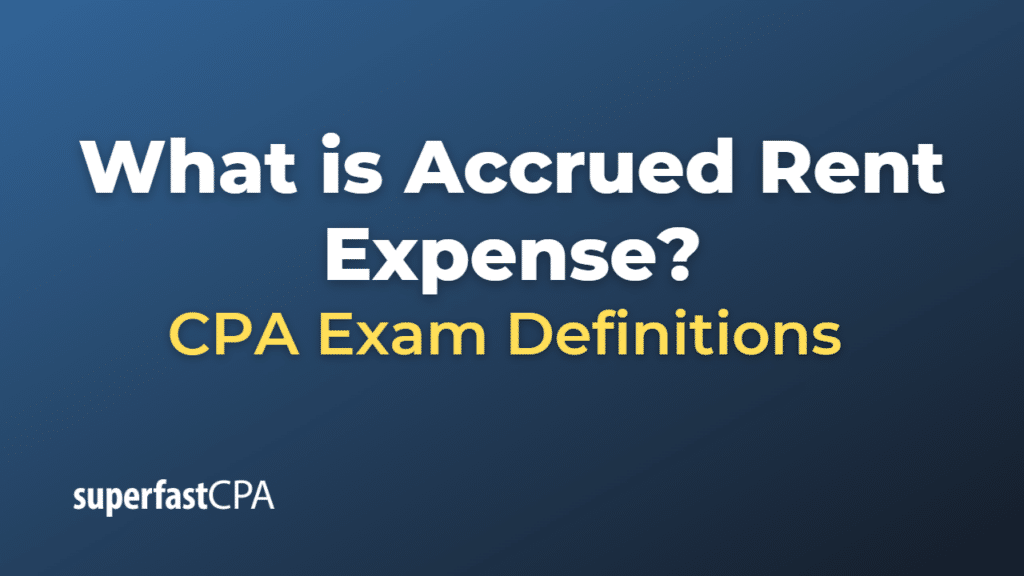Accrued Rent Expense
An accrued rent expense is a liability that occurs when a company occupies a rented space but has not yet paid the rent due for a specific period. In the context of accrual accounting, rent expenses are recognized in the period in which they are incurred, regardless of when they are actually paid. This concept adheres to the accrual basis of accounting and the matching principle, which aims to match revenues and expenses in the same accounting period.
Accrued rent expense is recorded on the company’s balance sheet as a current liability, often under the “Accrued Rent” or a similar account. Once the rent is paid, the accrued rent liability is reduced, and the cash account is debited.
To record an accrued rent expense, a company would typically record a journal entry debiting the relevant expense account (e.g., “Rent Expense”) and crediting the corresponding liability account (e.g., “Accrued Rent”).
For example, suppose a company rents an office space with a monthly rent of $2,000, payable on the first day of each month. The company’s accounting period ends on December 31st, but the rent for December is due on January 1st. To recognize the rent expense incurred in December, the company would record the following journal entry on December 31st:
Debit: Rent Expense – $2,000 Credit: Accrued Rent – $2,000
This entry ensures that the company recognizes the rent expense in the appropriate accounting period. When the rent is paid on January 1st, the company would record another journal entry to reverse the accrued rent liability:
Debit: Accrued Rent – $2,000 Credit: Cash – $2,000
By recording the accrued rent expense, the company ensures that its financial statements accurately reflect its financial performance and obligations for the accounting period.
Example of an Accrued Rent Expense
Let’s consider a hypothetical example to illustrate the concept of accrued rent expense.
Imagine a company called “ABC Corporation” that rents a warehouse for its operations. The monthly rent for the warehouse is $4,000, payable on the 15th of the following month. ABC Corporation follows the accrual basis of accounting and has an accounting period that ends on December 31st.
During the month of December, ABC Corporation occupies the warehouse as usual but has not yet paid the rent for December. The rent payment for December is due on January 15th. To account for the accrued rent expense, ABC Corporation needs to recognize the rent expense incurred during the December accounting period, even though the payment has not yet been made. The company would record the following journal entry on December 31st:
Debit: Rent Expense – $4,000 Credit: Accrued Rent – $4,000
This journal entry recognizes the rent expense for the accounting period and records the accrued rent as a liability on the balance sheet. Once ABC Corporation pays the rent on January 15th, the company will reverse the accrued rent liability and reduce the cash account with the following journal entry:
Debit: Accrued Rent – $4,000 Credit: Cash – $4,000
By recording the accrued rent expense, ABC Corporation ensures that its financial statements accurately reflect its financial performance and obligations for the accounting period, providing a clearer picture of its financial health for management, investors, and other stakeholders.













